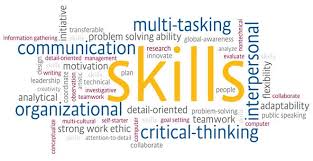5 Pivotal Soft Skills Essential For Success In Today’s Global Market
Some business leaders still believe imposed pressure, iron-fisted leadership and punitive criticism build the organization and the company’s bottom line. Plus, they think if leaders require employees to work longer and harder, the business gets a bigger bang for its buck. I spoke to a CEO of a major corporation who said he was glad his employees were not taking all their vacation days because it saved the company money. What he failed to see was his outdated practices don’t increase profits; they increase stress, which in turn undermines engagement and profitability; whereas, soft skills decrease stress and increase engagement and profits.
The Lingering Myth Of Soft Versus Hard Skills
A lingering myth links soft skills—such as compassion, trust, empathy, connection and kindfulness—with weakness and ineptness, stigmatizing them as irrelevant and less valuable than hard, technical skills. Experts say that tough business leaders who prioritize hard skills to prevent soft skills from undercutting profits are opposing themselves. They mistakenly think putting pressure on employees will increase performance and profits when it increases high levels of stress that carry a number of costs to both businesses and employees. Hard science demonstrates that there’s nothing soft about soft skills and that they are the foundation for job engagement, performance, employee well-being and the company’s bottom line.
A survey of 5,164 talent professionals and hiring managers by LinkedIn’s Global Talent Trends Report, reported that 80% of respondents said soft skills are increasingly important in today’s business world, 92% said human capabilities and soft skills matter as much or more than hard skills, and 89% of said when a hire doesn’t work out, it usually boils down to a lack of soft skills. Deloitte predicts that soft-skill intensive occupations will account for two-thirds of all jobs by 2030 and grow at 2.5 times the rate of jobs in other occupations.
Perhaps the real myth is that we have to choose one over the other when the key is a balance of both hard and soft skills. “While hard skills may get a candidate’s foot in the door,” admits Lydia Liu of Global Talent Trends, “it’s soft skills that ultimately open it.” Cynthia Germanotta, President of Born This Way Foundation agrees. “You can make tough business decisions, be productive and have strong profits and do it with dignity, kindness and compassion. It’s a tool, not just some fuzzy word.”
Five Pivotal Soft Skills In Today’s Global Market
#1. Self-compassion. Research shows that self-care and self-compassion reduce job stress and fuel job performance and achievement. Brain science shows that self-compassion isn’t just about liking yourself. It’s a tool for career success and failure. If you can approach yourself with kindness and curiosity, it prevents the flood of stress hormones when you’re under the gun. According to expert Dr. Kristin Neff, author of Fierce Self Compassion, “It helps us gain success, and it helps us deal with failure, which helps us succeed,” she told me. “The way you grow and learn is by dealing productively with failure. If you go into shame mode after failure, it’s not going to allow you to grow or take risks. You can be vulnerable, learn and grow if you have your own back with self-compassion.”
#2. Trust In The Company. Behavioral economists show that trustworthiness leads to higher economic gains and increases information sharing, openness, fluidity and cooperation in the workplace. Data from Deloitte show that trusted companies outperform their peers by up to 400%, directly correlating with the bottom line. Customers who trust a brand are 88% more likely to buy again. And 79% of employees who trust their employers are more motivated to work and less likely to leave. The winning formula to build trust is Honesty + Transparency, according to Deloitte. When companies demonstrate humanity, workers are 1.5 times more likely to defend their employer after someone’s criticism. When they show transparency, employees are 1.5 times more likely to positively review their employer on a public website. When they show capability, employees are 33% less likely to look for another job. And when they exhibit reliability, employees are 1.5 times more likely to recommend their employer to a friend, family member or colleague.
#3 Empathy. Studies show that the expression of empathy has far-reaching effects. When CEOs and team leaders learn to hold judgment at arms length and try to walk in employees’ shoes, it can boost workplace morale, team performance and productivity. Research shows that empathy is positively related to job performance and that bosses view managers who show empathy as better performers in their jobs. A Catalyst study of 889 employees showed that those with empathetic leaders, compared to those with less empathetic leaders, were more likely to be:
- Innovative—61% of employees, compared to 13%
- Engaged—76%, compared to 32%
- Retained—57% of white women and 62% of women of color were less likely to leave their positions when they felt valued, compared to 14% of white women and 30% of women of color
- Inclusive—50%, compared to 17%
- Balanced—86% said they were able to balance work-life demands, compared to 60%
President and CEO of Businessolver, Jon Shanahan, stresses the importance of workplace empathy. “After years of decline, workplace empathy has improved—alongside overall attentiveness to issues long considered to be among the most difficult to discuss in the workplace, including our lives outside of work, mental health and race,” he says. “However, despite broader gains, significant gaps in understanding remain between leaders and different groups of employees.”
#4 Connection. Science shows that workplace connections pay off in spades. According to Gallup, when employees feel like they don’t belong or that their workplace isn’t fair, performance suffers and engagement drops. Gallup’s data show that “Employees who feel included—based on strongly agreeing with Gallup’s recommended measures for inclusion—are more engaged at work than those who do not strongly agree with those survey items.” Red Thread Research and Enboarder corroborate Gallup’s conclusions that strong workplace connections have significant benefits for both employees and employers. When companies prioritize connections, they’re 2.3 times more likely to have engaged employees, 5.4 times more likely to be agile and 3.2 times more likely to have satisfied customers.
# 5. Kindfulness. Studies show that kindfulness is essential to recruit and retain talent and that it has long-reaching positive effects. Workers are happier, more engaged and productive, and kindfulness boosts the company’s profitability. A recent study found that employees are more invested in their jobs if they are in a kind workplace that prioritizes mental health. Plus, 77% of job seekers were more likely to apply for a job posting that listed “kindness” as an important value of the company
Research on kindness shows that it has a ripple effect. Workplace mindfulness promotes employee well-being which translates into personal engagement and company profitability. Plus, kind leaders have kinder employees and attract kinder applicants; kindness boosts productivity and engagement; and employees on the receiving end of kind deeds are more likely to put in more discretionary effort, welcome new employees and fill in for coworkers.
Source: forbes.com




